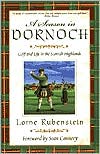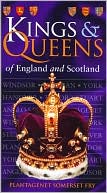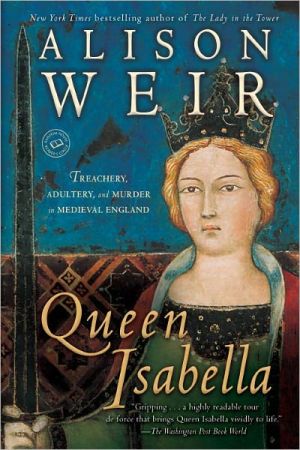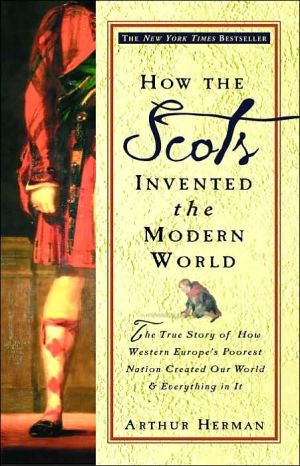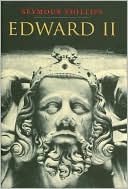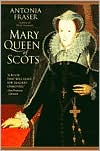A Season in Dornoch: Golf and Life in the Scottish Highlands
The town of Dornoch, Scotland, lies at nearly the same latitude as Juneau, Alaska. A bit too far removed for the taste of the Royal and Ancient Golf Club of St. Andrews, the Royal Dornoch Golf Club has never hosted a British Open, but that has hardly diminished its mystique or its renown. In an influential piece for The New Yorker in 1964, Herbert Warren Wind wrote, "It is the most natural course in the world. No golfer has completed his education until he has played and studied Royal...
Search in google:
The town of Dornoch, Scotland, lies at nearly the same latitude as Juneau, Alaska. A bit too far removed for the taste of the Royal and Ancient Golf Club of St. Andrews, the Royal Dornoch Golf Club has never hosted a British Open, but that has hardly diminished its mystique or its renown. In an influential piece for The New Yorker in 1964, Herbert Warren Wind wrote, "It is the most natural course in the world. No golfer has completed his education until he has played and studied Royal Dornoch." If any town in the world deserves to be described as "the village of golf," it's Dornoch. You can take the legendary links away from St. Andrews, and you'll still have a charming and beautiful university town with great historic significance; take the links away from Dornoch and it would be as little noted or known as its neighbors Golspie, Tain, and Brora. (The town is forty miles north of Inverness, generally thought of as the northernmost outpost of civilization in Scotland.) The game has been played in Dornoch for some four hundred years. Its native son Donald Ross brought the style of the Dornoch links to America, where his legendary, classic courses include Pinehurst #2, Seminole, and Oak Hill. Lorne Rubenstein decided to spend a summer in Dornoch to clear the muddle from his golfing mind and to rediscover the natural charms of the game he loves. But in the Highlands he found far more than bracing air and challenging greens. He found a people shaped by the harshness of the land and the difficulty of drawing a living from it, and still haunted by a historic wrong inflicted on their ancestors nearly two centuries before. Rubenstein met many people of great thoughtfulness and spirit, eager to share their worldviews, their life stories, and a wee dram or two. And as he explored the empty, rugged landscape, he came to understand the ways in which the thorny, quarrelsome qualities of the game of golf reflect the values, character, and history of the people who brought it into the world. A Season in Dornoch is both the story of one man's immersion in the game of golf and an exploration of the world from which it emerged. Part travelogue, part portraiture, part good old-fashioned tale of matches played and friendships made, it takes us on an unforgettable journey to a marvelous, moody, mystical place. Kirkus Reviews Seeking escape from the pressures that are spoiling the game for both fans and players, Rubenstein, who covers golf for the Toronto Globe and Mail, retreats to a fabled course in the northernmost part of Scotland. A gifted golf journalist, Rubenstein is also a fairly serious amateur player seeking respite from the complexities of the game, trying to suppress the "swing thoughts" that play havoc with his own golf, seeking a place where he can relax and rediscover golf as pure play, pure joy. He finds that demi-nirvana in a village of a thousand souls at the same latitude as Juneau, Alaska, in the Scottish highlands. Royal Dornoch is probably the best yet least-known of the classic Scottish links courses built at the edge of the sea, whipped by unpredictable northern winds. Dornoch's most famous son, the great golf-course architect Donald Ross, grew up a middle-iron shot away from the course before he followed most of the town's young people to North America. During his three months in Dornoch, Rubenstein falls easily into close relationships with the people of the town who, belying the cliche of the "dour Scot," are warm and open. He drinks a lot of excellent single-malt, plays a lot of golf, and discovers a second home where he can indeed decompress. Although he doesn't cure his swing problems, he does rediscover much of what drew him to the game in the first place. At the same time, he offers some intelligent ruminations on the tragic 19th-century Highland Clearances-when wealthy landlords drove tenant farmers off their land to replace them with herds of sheep-and some thoughtful reflections on the ecological problems that face land-poor Scotland. A book of considerable charm that willdelight more than just golf fans.
ForewordixChapter 1Back to Dornoch1Chapter 2The First Round15Chapter 3Dornochers35Chapter 4Rambles46Chapter 5Nell and Me63Chapter 6Palimpsest76Chapter 7The Captain's Pink Balls95Chapter 8The Bookshop110Chapter 9New Friends123Chapter 10The Clearances135Chapter 11Highland Music142Chapter 12Linksland153Chapter 13The Golf World Comes to Dornoch165Chapter 14Swing Thoughts177Chapter 15The Scottish Amateur191Chapter 16The Carnegie Shield210Chapter 17My Heart's in the Highlands230Credits243
\ From Barnes & NobleJoin sportswriter Lorne Rubenstein as he rediscovers the joy of golf in the wilds of the Scottish Highlands. Rubenstein makes a pilgrimage to Dornoch, a tiny village boasting a classic golf course built at the edge of the sea, hoping that a season here will clear his mind and improve his game. Rubenstein's tales of friendly villagers, excellent whiskey, and of course, hitting the links, make A Season in Dornoch a wonderful read.\ \ \ \ \ Kirkus ReviewsSeeking escape from the pressures that are spoiling the game for both fans and players, Rubenstein, who covers golf for the Toronto Globe and Mail, retreats to a fabled course in the northernmost part of Scotland. A gifted golf journalist, Rubenstein is also a fairly serious amateur player seeking respite from the complexities of the game, trying to suppress the "swing thoughts" that play havoc with his own golf, seeking a place where he can relax and rediscover golf as pure play, pure joy. He finds that demi-nirvana in a village of a thousand souls at the same latitude as Juneau, Alaska, in the Scottish highlands. Royal Dornoch is probably the best yet least-known of the classic Scottish links courses built at the edge of the sea, whipped by unpredictable northern winds. Dornoch's most famous son, the great golf-course architect Donald Ross, grew up a middle-iron shot away from the course before he followed most of the town's young people to North America. During his three months in Dornoch, Rubenstein falls easily into close relationships with the people of the town who, belying the cliche of the "dour Scot," are warm and open. He drinks a lot of excellent single-malt, plays a lot of golf, and discovers a second home where he can indeed decompress. Although he doesn't cure his swing problems, he does rediscover much of what drew him to the game in the first place. At the same time, he offers some intelligent ruminations on the tragic 19th-century Highland Clearances-when wealthy landlords drove tenant farmers off their land to replace them with herds of sheep-and some thoughtful reflections on the ecological problems that face land-poor Scotland. A book of considerable charm that willdelight more than just golf fans.\ \
